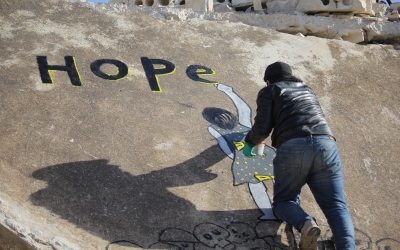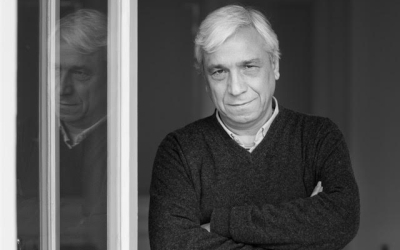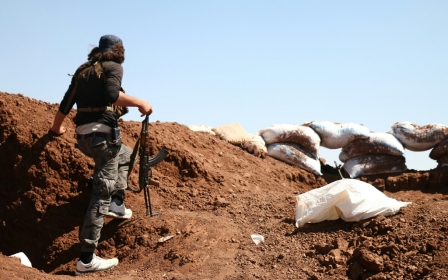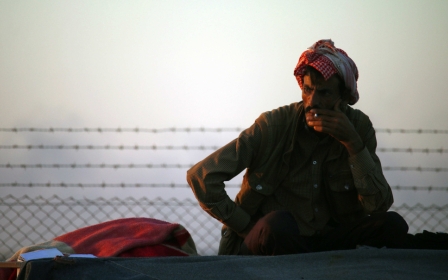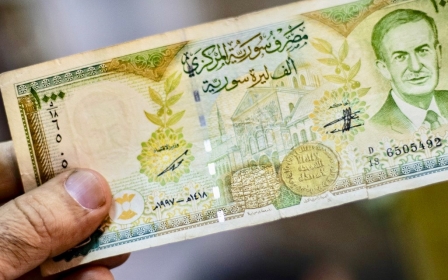Tensions in Syria's Daraa are getting out of hand
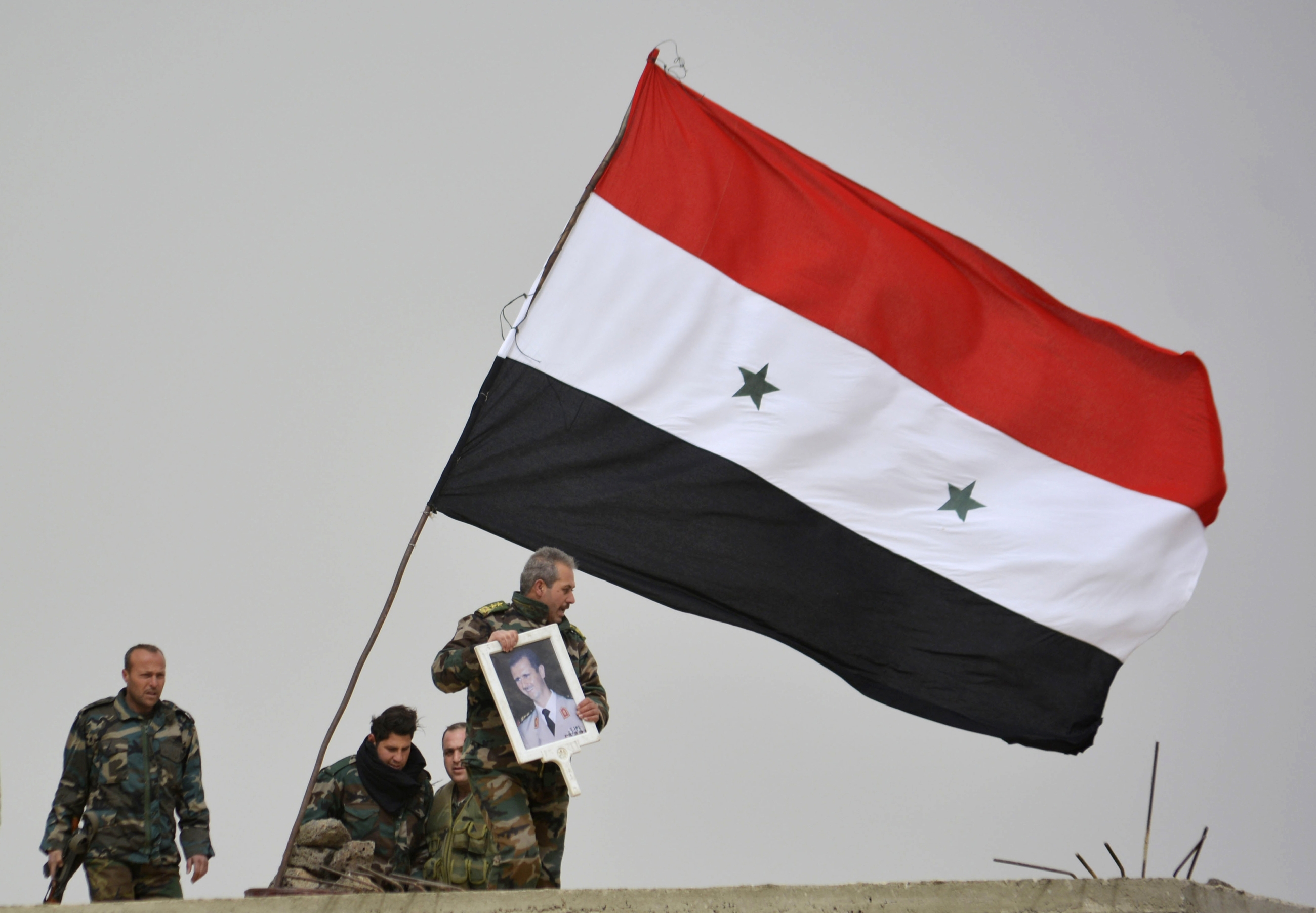
In the early evening of 11 January, a group of armed men stormed a checkpoint on the outskirts of Nahteh in Syria's eastern Daraa countryside, detaining a dozen air force intelligence operatives before disappearing again into the night.
Hours later, armed men carried out a similar attack on another checkpoint manned by pro-government forces, about 10km further south, near the town of Al-Karak al-Sharqi. Again, fighters were detained and weapons confiscated.
In the wake of the attacks, pro-opposition media pages started sharing messages of solidarity from towns across the Daraa countryside. Many of them bear the same message scribbled onto pieces of paper, an array of rifles and grenades placed nearby: "We are with you until death."
The assaults are but one story in a growing wave of assassinations, raids, drive-by shootings and kidnappings that have come to typify life in Syria's southwestern province.
For the Syrian government, they are deeply troubling evidence that recent efforts to reach out to restive communities in south Syria are not working.
New MEE newsletter: Jerusalem Dispatch
Sign up to get the latest insights and analysis on Israel-Palestine, alongside Turkey Unpacked and other MEE newsletters
To some ears, the recent escalation in violence and unrest, combined with an organised political response, has started to sound rather like revolt and could resemble the first signs of an escalation that observers have been expecting for months.
The Daraa insurgency
Daraa has always been something of an exception in Syria's uprising.
Known as the "cradle of the revolution" after protests in March 2011 sparked a nationwide movement against President Bashar al-Assad and his government, Daraa's Free Syrian Army (FSA) battalions at times seemed to outside observers to be the best hope for a stable, democratic Syria without Assad at its helm.
Rebel groups making up the western-backed Southern Front had to a large extent kept hard-line militants found elsewhere in the opposition at arm's length.
Solid support from regional allies, international NGOs and a plethora of civil society organisations on the ground helped create a relatively stable local economy independent of the Syrian government.
However, in mid-2018, with the Syrian army advancing on opposition-held territory across the country, pro-government forces turned their attentions southwest.
Despite predictions to the contrary, Daraa's opposition collapsed in a matter of weeks through a combination of immense military force and negotiated settlements that chipped away at the remains of rebel-held territory.
The way areas were brought back under government control dictated how they would be ruled afterwards. Areas that surrendered were largely brought back under centralised control, whereas areas that negotiated surrender were permitted some degree of local autonomy.
Rebel groups held on to some of their weapons, and local reconciliation committees were left with a degree of autonomy not seen in other areas of Syria. The result was a complex patchwork of localised truces.
It became clear soon afterwards that the Syrian government was going to carry on as before.
Arrests, disappearances and targeted killings claimed the lives of former rebels, activists and others who had participated in governance in opposition-era Daraa.
Former rebels then started the first rumblings of a low-level insurgency, targeting Syrian army and intelligence officers, reconciliation negotiators and former rebels they deemed to be traitors for working alongside Damascus. Unrest followed soon after the actual conflict ended in Daraa, and has become more of a threat to local stability ever since.
In 2019 alone, there were at least 305 assassination attempts recorded across Daraa province, according to the Daraa Martyrs Documentation office, a local monitoring group. Assassinations and disappearances have targeted all sides in Daraa's messy post-conflict politics.
Intelligence chief appointed to 'stabilise' Daraa
And while violence has continued well into the new year, it appears that the Syrian government may finally be running out of patience.
Since last month, intelligence chief Hussam Louqa has been hosting a number of meetings with community figures in Daraa city, according to media reports and two sources with knowledge of the matter.
Although it was not announced publicly, Louqa had just been promoted to the head of a Daraa security committee that gave him coordinating powers over the entire security apparatus in the southwest.
The committee itself is not new. It includes other senior figures from local security branches in the south, including Luoy al-Ali, the head of military security in southern Syria, who is said to maintain close links to Hezbollah and Iran.
Louqa is head of Syria's general intelligence agency, having been promoted to replace Major-General Deeb Zeitoun in July last year. The move was part of a broader shake-up of Syria's security leadership by Assad himself.
Originally from the southern Aleppo countryside, Louqa was sanctioned by the European Union in mid-2012 for his previous role at the helm of the political security directorate in Homs, where he was allegedly "responsible for the torture of opponents in custody," according to the EU.
A former senior FSA figure, speaking on condition of anonymity, said that Louqa has since worked to sideline reconciliation committees that - in some areas of Daraa - still wield relative autonomy from Damascus.
Pro-opposition outlet Zaman al-Wasl reported that when Louqa met with reconciliation committee representatives last year, he presented a list of demands: hand over all wanted persons and individual weapons to the government, and start reining in demonstrations.
"Based on [Louqa's] behaviour in the south over the past two months, I think he's trying to decrease the role of the reconciliation committees as much as he can... because he doesn't want anyone to have influence except him," the FSA source told MEE. "He wants it all to go through him."
According to a researcher who maintains contacts among Daraa's reconciled rebels and local communities, Louqa has come to represent a more approachable face of the government since.
"He promised to release detainees, stop arrests and try and mediate for better service provision," the researcher, speaking on condition of anonymity for security reasons, told MEE.
Louqa has also purportedly requested that families of detainees in Daraa directly deal with his office in Daraa city, rather than through the reconciliation committees.
By contrast, other officials have responded to any opposition or critical approach with threats and intimidation. When Muhammad al-Mahla, another senior Syrian intelligence figure, was asked last year about the fate of detainees by Daraa community representatives, he reportedly replied: "Forget anyone taken before 2014."
Similarly, Jamil al-Hassan, Syria's notorious former air force intelligence chief, has previously made explicit threats against restive communities in Daraa.
Louqa, on the other hand, hasn't resorted to intimidation. He purportedly makes positive noises about wanting to get things done.
And yet, the researcher added, Louqa has largely failed until now.
Meanwhile, local communities across the southwest appear to be losing patience.
'The people of Daraa will not accept injustice’
A week after 11 January raids, a group of tribal and community leaders, sheikhs and FSA rebel commanders came together in Daraa al-Balad, the formerly opposition-held southern half of Daraa city.
Together, they signed a joint charter condemning a recent spate of assassinations and kidnappings in the area targeting former rebels.
"The people of Daraa will not accept injustice or corruption, and they will unite efforts to eliminate what they call corruption in all its forms," the statement read.
On Tuesday, local community leaders met again and published a nine-point list of demands for the Syrian government related to the wave of arrests and disappearances, local autonomy and the fate of detainees.
According to one of the signatories, Abu Qusai al-Kurad, a former senior figure in the FSA's Southern Front, "kidnappings, murders and disappearances abound... [and] we point our fingers squarely at the security apparatus of the Syrian regime".
Kurad hopes the list could become a charter and model for the rest of Syria's south.
"We're starting in Daraa [city], but we will unite the east and west [countryside] as well," he told MEE.
The senior FSA source, meanwhile, said that the Syrian government will likely have taken note. As a result, he anticipated, intelligence agencies will continue to attempt to penetrate local communities and bump-off suspected troublemakers in coming weeks and months.
“It was a warning to the regime. And the regime took it very seriously,” the source said.
Middle East Eye delivers independent and unrivalled coverage and analysis of the Middle East, North Africa and beyond. To learn more about republishing this content and the associated fees, please fill out this form. More about MEE can be found here.


